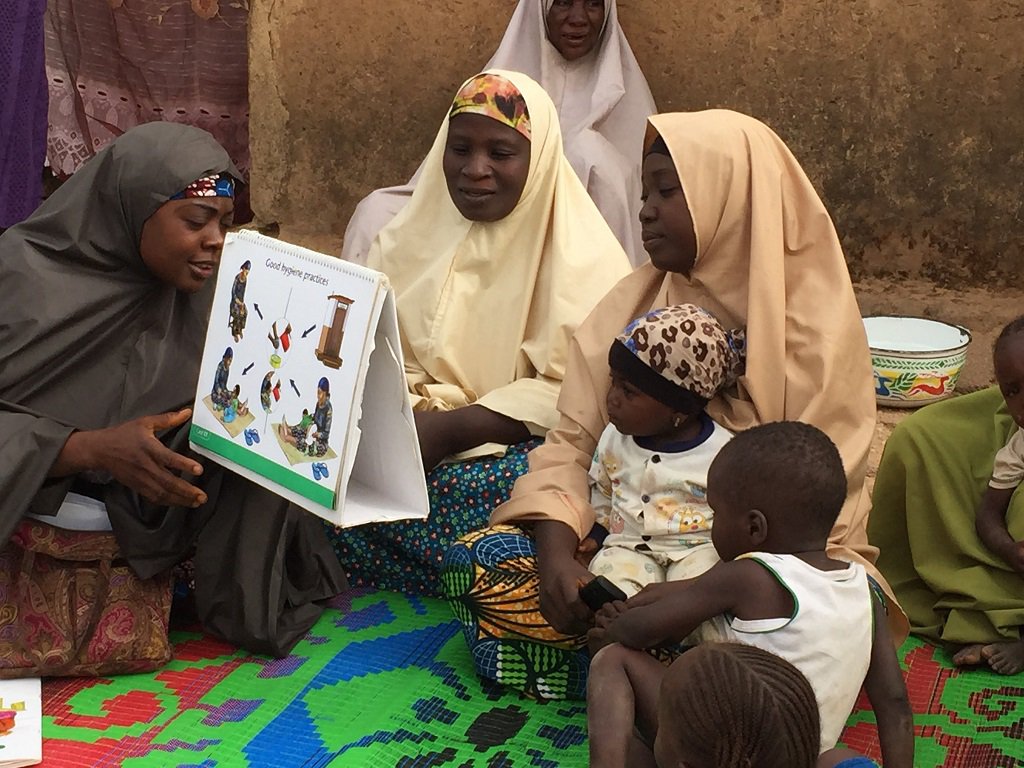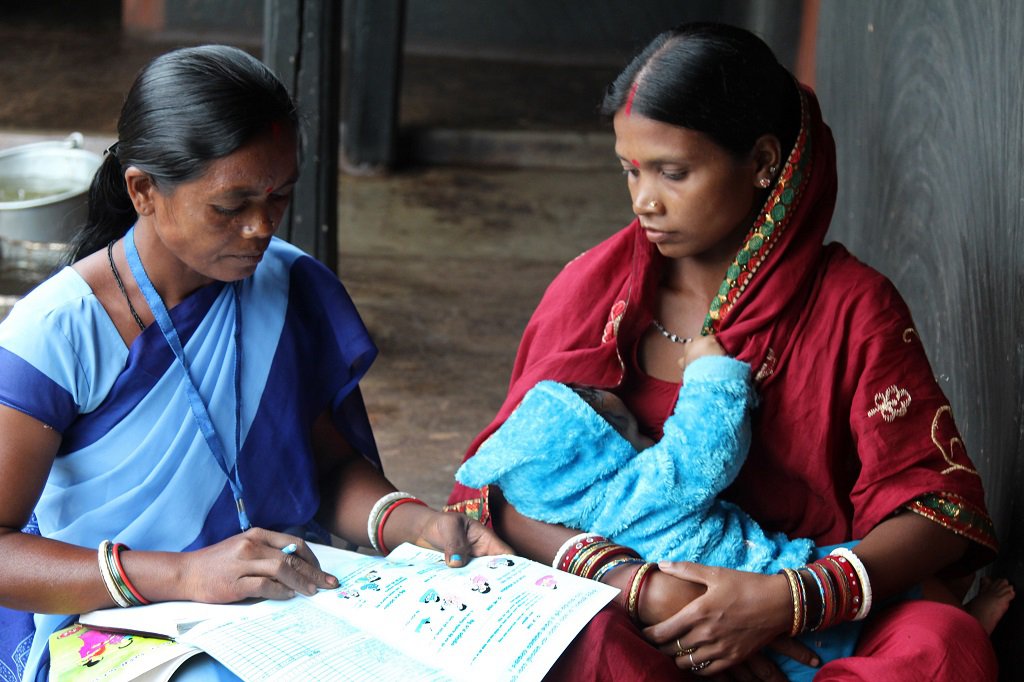This blog originally appeared on The Huffington Post.
Despite global consensus on the need to take action, malnutrition continues to be one of the greatest challenges to the development of countries around the world. The effects of malnutrition – which can be seen within families, communities and even economies – lead to reduced human potential and productivity.
However, community health workers (CHWs), with their strong connections to the families and communities where they work, are in a unique position to help! And the project I work on is committed to strengthening their role as an important part of the nutrition workforce.
USAID’s multi-sectoral nutrition Strengthening Partnerships, Results, and Innovations in Nutrition Globally (SPRING) project is raising the status and quality of nutrition services provided by CHWs by paying attention to the:
- Foundation underlying how CHWs operate;
- Support CHWs get to improve their practices; and
- Public demand for nutrition services.
This means we need to understand what CHWs are allowed to do, trained to do, and actually do. Therefore, SPRING developed easy-to-use tools for assessing the nutrition actions that health workers perform at different levels within the health system. In partnership with the USAID-supported Advancing Partners and Communities project, we also developed country profiles outlining the types of CHWs in different countries, their roles and responsibilities, the population groups they serve, and areas of strength and weakness.
If you take a look at these profiles you’ll see they can be used to:
- Identify which nutrition-related services CHWs can provide, according to country policies;
- Prioritize and/or reassign responsibilities to avoid overburdening CHWs;
- Build a stronger foundation of policies, tools, and systems for CHWs to conduct their work;
- Plan additional support to CHWs;
- Design and conduct other in-depth assessments of community nutrition programs; and
- Inform program implementers to strengthen community health interventions.
Let me share some concrete examples of what I mean from SPRING’s country-based work. Kyrgyz Republic provides some interesting examples of what goes into strengthening the foundation CHWs need to be able to provide quality nutrition services. There, we’re training master trainers at the national level, and integrating nutrition content into existing training programs with academic partners responsible for pre- and in-service training of health workers. We’re also building the capacity of public-sector health organizations to strategically improve the quantity and quality of nutrition services and counseling countrywide. This provides the foundational underpinning for stronger CHWs.
Alongside our policy and analysis work, SPRING works directly with CHWs in several countries. For example, we are training CHWs on nutrition counseling for pregnant and lactating women in Bangladesh, Ghana, Haiti, India, Nigeria and the Kyrgyz Republic — and following up with supportive supervision and coaching, knowing that providing continuous support helps CHWs retain nutrition knowledge and put their new skills into practice.

But CHWs need more than supervision and coaching. They are also motivated by growing demand for their services.
In India and West Africa’s Sahel region, we’re building demand through a series of community-led videos that show how CHWs and volunteers can help to improve nutrition-related behavior and practices such as breastfeeding, child nutrition, home farming, and hygiene. These efforts are improving understanding of nutrition and health and dispelling misconceptions and myths.
In Ghana, an initiative unique to SPRING reflects our multi-sectoral ethos and promotes best practices in water, sanitation and hygiene alongside pro-nutrition behaviors during the first 1,000 days. Community leaders who were empowered to become “WASH champions” play a crucial role in building demand for the services CHWs provide.
Our work has shown us that CHWs love having the opportunity to help their communities, but they have needs that our programs can help address. Through our experience in 16 countries, it’s clear to us that to sustain and scale up high-quality nutrition services delivered by CHWs, countries must work to ensure that there is:
- A strong foundation of governance structures that can support and provide coordination;
- Adequate training and support for the workers who are expected to deliver nutrition-related services; and
- Programs that help to stimulate demand from communities and individuals for those services.
With these in place, CHWs are very much part of the solution for better nutrition!

